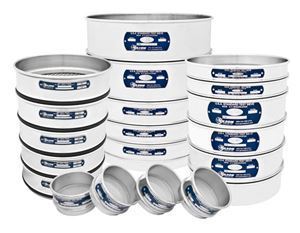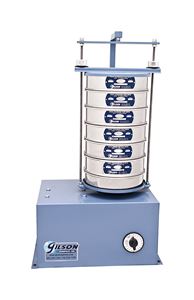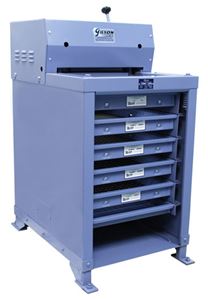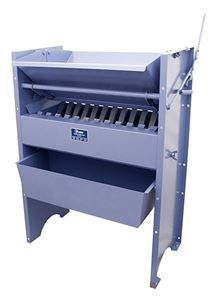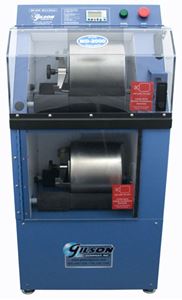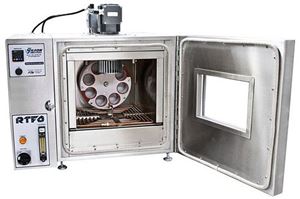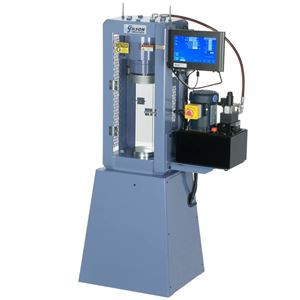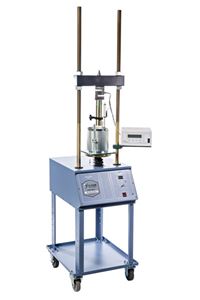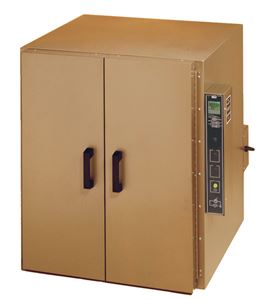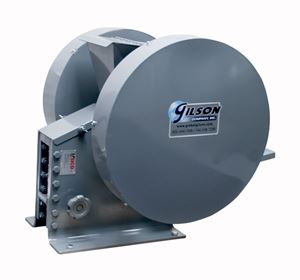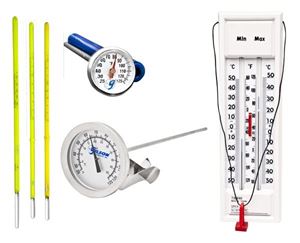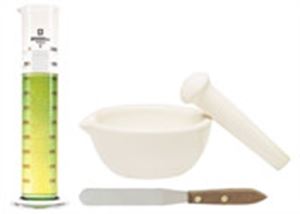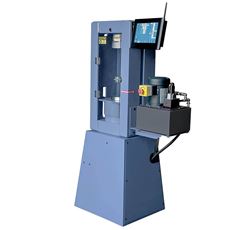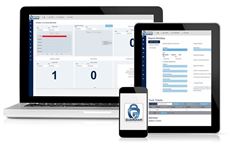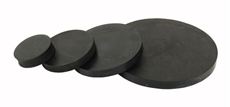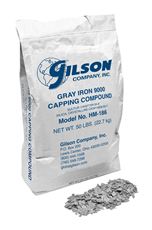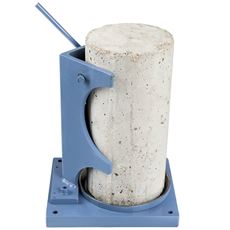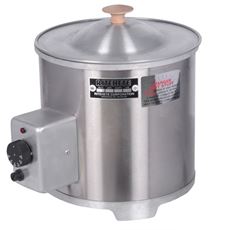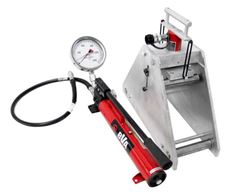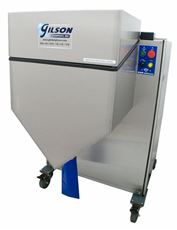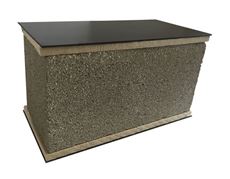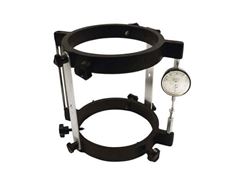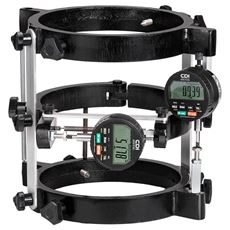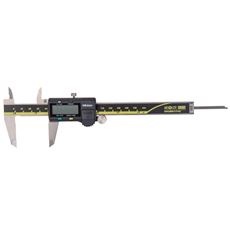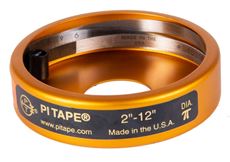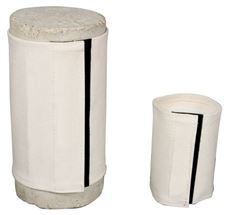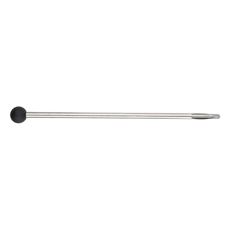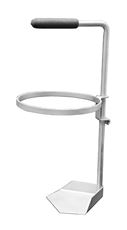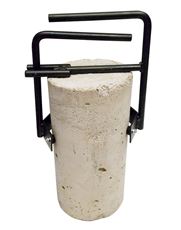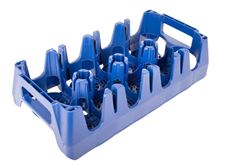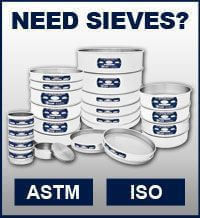- Log in
- Favorites List
-
Shopping Cart
You have no items in your shopping cart.
- Gilson Chat
Materials Testing EquipmentContact Us Today! 800-444-1508
Search
Concrete Strength Testing Equipment
Compressive or flexural strength of concrete is easily measured in a number of ways for different types of specimens. Gilson Compression Testing Machines are the stiffest in the industry and meet or exceed ASTM C39 requirements and ACI 368 recommendations for rigidity.

We offer a full line of concrete compression testing machines and related accessories to determine flexural beam strengths, deformation and strain, and more. Gilson also features a complete selection of accessories for capping and end preparation of strength specimens, as well as instruments for strength estimates of hardened concrete in the field.
- Concrete Compression Machines feature a choice of controllers for automatic or standard operation and frames with capacities from 250 to 500Mlbf (1,112 to 2,224kN). Each series offers models that can be configured to perform a variety of tests on different sample types. Gilson Compression Testing Machines meet or exceed ASTM C39 requirements and ACI 368 recommendations for frame rigidity.
- Gilson Guardian Cloud Sharing Application makes it possible to track field samples from casting through completion. This software can be added to any Gilson Automatic or Basic Compression Machine and enhances the data collection and transfer process of concrete compression testing.
- Unbonded Concrete Cylinder Capping Pads and Sets use neoprene pads in steel retaining rings as an efficient and economical alternative to capping cylinder specimens with molten sulfur for compressive strength tests. Sets and pads are available for 2in 3in, 4in, and 6in diameter cylinders.
- Capping Compound is a sulfur mortar and fly ash material used for end preparation for concrete cylinder specimens. The caps provide even load distribution during load applications. The compounds melt quickly and comply with ASTM and AASHTO standards. Available in ingot or ultra-thin flake compounds.
- Vertical Cylinder Cappers act as molds for molten sulfur mortar capping compound and are available for 3in, 4in, and 6in (76mm, 102mm, and 152mm) diameters. The capping fixtures meet the requirements of AASHTO T 231 and ASTM C617 standards.
- Melting Pots are used for heating capping compounds, wax, tars, liquid asphalt, and other materials. The pots provide even heat distribution and feature precision temperature control from 38°–160°C (100°–320°F). Models are available in 4, 8, 12, 20, 24, and 28qt capacities.
- Portable Concrete Beam Tester is hydraulically powered and manually operated. The unit sets up quickly for rapid field checks of 6x6in (152x152mm) concrete beam specimens. Easily transportable.
- Concrete Cylinder End Grinders eliminate the need for sulfur capping or unbonded neoprene caps on concrete cylinder compressive strength specimens. The cost-effective and time-saving units for 4in or 6in (102 or 152mm) cylinders reduce health and safety concerns and can prepare four to six specimens simultaneously. As many as 100 cylinders can be prepared for testing in a day.
- Masonry Block Caps are a unique capping method used for compressive strength testing of masonry block units. Models are available for 8x16in or 12x16in blocks and are ideal for internal quality control testing applications.
- Compressometers measure the average deformation and strain of concrete cylinders during compression testing to determine the modulus of elasticity. Models come in versions to test 6x12in or 4x8in specimens, with a digital, mechanical dial, or analog dial indicators.
- Compressometers/Extensometers are similar to Compressometers, but with a third center yoke to measure horizontal extension for determination of Poisson’s ratio. These units are available with digital, mechanical, or analog dial indicators, and separate models fit standard 4x8in or 6x12in concrete cylinders.
- Perpendicularity Verification Devices (PVDs) verify the proper perpendicular alignment of concrete cylinders in a compression testing machine prior to compressive strength testing. The latest revisions to ASTM C39 require verification that alignment is within ±0.5° of vertical for each specimen tested when using Unbonded Caps.
- Digital Calipers are available in models with 0-6in or 0-12in range and measure inside, outside or depth in millimeter or inch.
- Diameter Measuring Pi Tape offers ease of measuring round or out of round specimens. Select from models that take inch or metric measurements.
- Cylinder Wraps are canvas-nylon cloth sheaths that minimize shattering when a cylinder breaks during testing. Velcro® straps secure the wrap tightly around the cylinder. Available in 4 and 6in sizes.
- Concrete Cylinder Stripping Tool has a sturdy 20in (508mm) long metal blade and is used to easily remove single-use plastic or cardboard cylinder molds from concrete specimens of all sizes.
- Concrete Cylinder Mold Carrier Ring securely supports 6x12in concrete cylinders when freshly molded or for transport. It is also used when moving or handling heavy cylinders in the laboratory. The carrier is equipped with a sliding ring to ensure the secure handling of the cylinder.
- Cylinders Lifting Handles are used when handling 4 and 6in diameter cured concrete cylinders. Metal pincer-style grips with top carrying handles to grip the sides of the concrete cylinder for a secure fit.
- Concrete Cylinder Transport Racks are available in models holding eight 4x8in or eight 6x12in concrete cylinders for curing and/or transport. Each model fits within the HM-112 Field Curing Chest.
For more information on Concrete Strength Testing Equipment, here are our related blogs:

